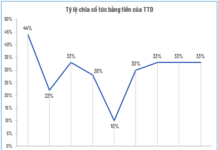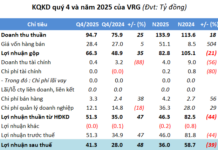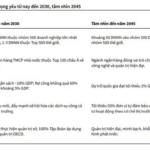Rising Competition in the Labor Market
A large number of graduates from colleges and universities are now seeking employment, creating a competitive environment for young job seekers. This abundance of fresh talent presents a great opportunity for businesses to recruit high-quality, youthful employees. However, it also intensifies the competition within the job market.
In Hanoi, statistics from the Hanoi Center for Employment Services reveal that during July, job seekers were predominantly aged between 25 and 34, accounting for 45.8%. Meanwhile, those aged 15 to 24 made up 11.75% of the total.
Vu Quang Thanh, Deputy Director of the Hanoi Center for Employment Services, points out several reasons why young workers may struggle in today’s job market. One key issue is their lack of practical experience in their field of interest. Employers often favor candidates with work experience and may view young applicants as a risk. In Hanoi, nearly 50% of job vacancies in July required a minimum of two years of experience.
Additionally, young job seekers face competition from more experienced individuals. In a highly competitive market, their youth and lack of experience can be a disadvantage. Statistics show that 88.25% of job seekers are aged 25 and above, indicating a mature and skilled talent pool.
Another challenge is the high educational requirements set by employers. Certain positions demand specific degrees or certifications, which may be a barrier for young graduates or those from less privileged backgrounds. Over 60% of job openings in Hanoi during July required a minimum qualification of a college degree, creating a hurdle for young people eager to enter the job market.
Some industries also require specialized skills that young people may not yet possess, such as technical, leadership, or management skills. These abilities are often honed over a lengthy career.
Adaptability is Key
To navigate the dynamic job market in Hanoi, experts suggest that job seekers develop and enhance certain skills. Technical and technological proficiency is crucial as technology rapidly evolves. This includes familiarity with new tools, software, artificial intelligence, and big data.
Effective communication skills and the ability to work collaboratively in diverse teams are also highly valued by employers. Moreover, in a bustling city like Hanoi, time management and self-management skills are essential to ensure efficient and timely task completion.
Proficiency in English is another asset that can open doors to opportunities with international companies or those operating globally. Being multilingual enhances one’s employability and adaptability in a diverse workforce.
Addressing Challenges for Young Job Seekers
To overcome these challenges, Le Minh Thao, Head of the Vocational Education Department (under the Hanoi Department of Labor, Invalids, and Social Affairs), emphasizes the need for comprehensive solutions. Educational institutions should strive for excellence and align their curricula with the needs of businesses. Given limited financial resources, forging strong partnerships with companies can provide much-needed support and ensure a more seamless transition from education to employment.
Enhancing Labor Quality: An Ongoing Process
Nguyen Thanh Huong, National Human Resources Director at ManpowerGroup Vietnam, highlights the skills gap as a prevalent issue in the Vietnamese labor market. With extensive experience in recruitment, she observes that the lack of skills and qualifications among job seekers often fails to meet the rising expectations of employers.

Statistics from the Ministry of Labor, Invalids, and Social Affairs for the second quarter of 2024 underscore this mismatch. Approximately 50.3% of job openings required a university degree or higher, whereas only 45.9% of job seekers met this criterion.
Similarly, while 35.7% of positions called for a college, junior college, or vocational school diploma, only 20.2% of job seekers possessed the necessary qualifications. In contrast, 14% of vacancies did not require any specialized training, but a substantial 33.9% of job seekers lacked any formal qualifications.
Vu Trong Binh, Director of the Department of Employment (Ministry of Labor, Invalids, and Social Affairs), acknowledges the current stability in the labor market’s supply and demand. However, he also points out that there are ongoing issues with the quality of the labor force. In certain areas, such as Bac Giang and Hai Phong, rapid investment growth has led to a temporary imbalance in labor supply, particularly regarding skilled workers.
Looking ahead, the Ministry of Labor, Invalids, and Social Affairs forecasts that in the third quarter of 2024, Vietnam’s total employed population will reach approximately 51.57 million, marking an increase of 127,000 individuals compared to the second quarter. Industries expected to witness notable job growth include wood processing and product manufacturing (3.3% increase), chemical production (3.2% increase), and metal product manufacturing (3.1% increase).
Conversely, a decrease in employment is predicted for sectors such as electrical equipment manufacturing, repair and maintenance services for machinery and equipment, and agriculture, forestry, and fisheries.
To address the existing shortcomings in the labor market, the Ministry of Labor, Invalids, and Social Affairs plans to refine policies and legislation to foster the holistic development of the market. Additionally, they will focus on strengthening connections between labor supply and demand, with a particular emphasis on creating new job opportunities.
Top Industries Hiring More Workers After Tet
The business sector is actively engaging in labor recruitment right from the start of the year. In the first quarter, certain industries are forecasted to see an increase in job opportunities, such as food processing, electrical equipment manufacturing, according to the analysis from the Ministry of Labor – Invalids and Social Affairs…



















